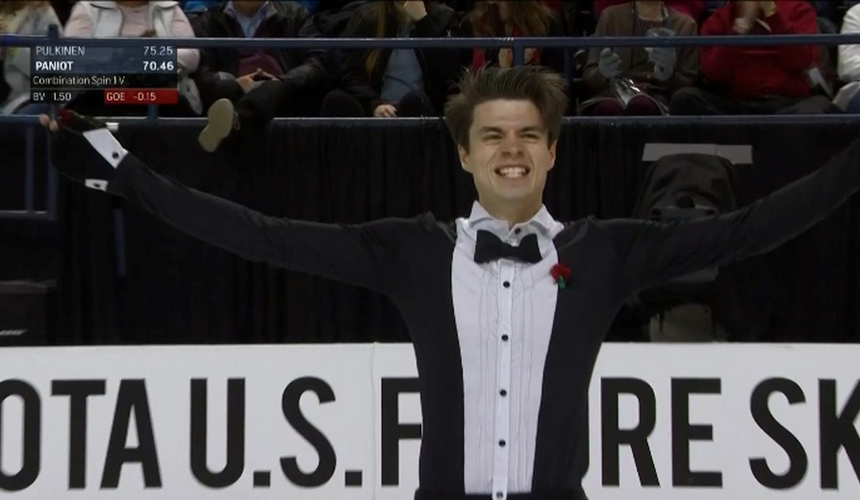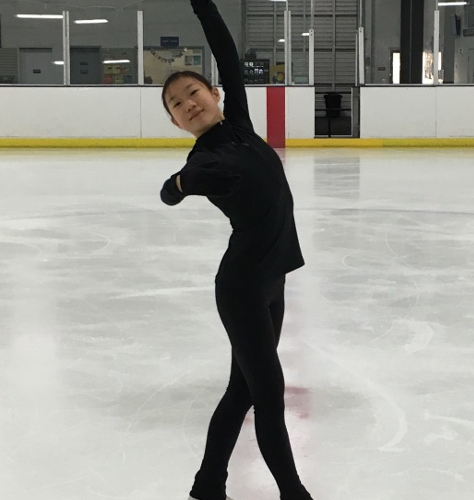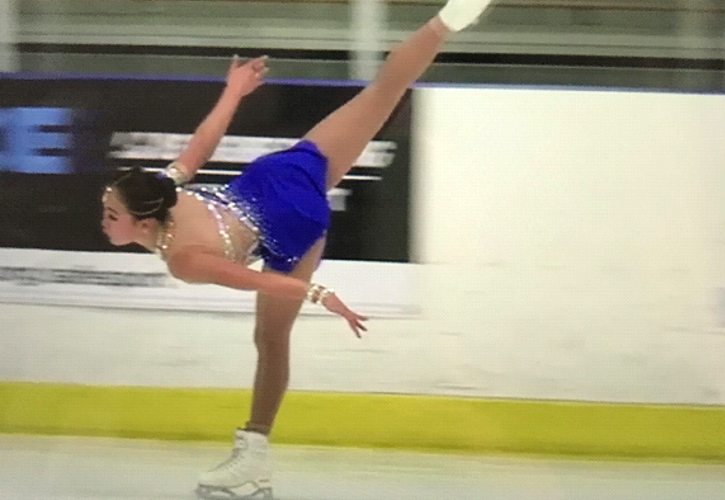Reflections: The Intersection of Ballet and Choreography
- Phillip Mills

- Feb 24, 2020
- 5 min read
Updated: Mar 4, 2020
As I reflect back on my many years of creating choreography for U.S. and international figure skaters, I feel fortunate and honored by all of the many coaches that entrusted their prized athletes to me.
Choreography is subjective, and like in the ballet, there can be those who like a program as well as those who might wish to modify the work. Although these opinions are considered by the choreographer, they cannot be the final determining factor in producing a piece of work that inspires the skater, judges and audience. When I choreograph a program I use my foundation as a compass to get to a specific destination. This foundation lies in gymnastics with its precise physics and my classical ballet training for the purity of movement. The slide show was developed to offer a thoughtful look back at some of the program videos that I feel offer high artistic value and have stood the test of time.
The intersection of ballet’s classic lines and extension, the choreographic design taking in each skater’s unique style, and crafting each program to make it flow, especially for the jumps, can create a type of magic on the ice.
Jill Trenary’s skating was full of joy and excitement and audiences loved to watch her pour in amazing amounts of energy and detail into her programs. The video is of her 1990 gold medal winning short program at the World Championships. I designed it for Jill with a focus on light and enhancing the joyfulness in her skating that people loved. Her famous short haircut was as full of life as she was. I always said Jill was one of the hardest working skaters I ever taught. We worked together for four years during which she won two World medals and two national championships. Carlo and Christa Fassi were so generous entrusting me with Jill and many other national champion skaters from around the world. Working with Jill was one of the highlights of my career.
Susie Wynne and Joseph Druar were very special to choreograph for. I worked with them in conjunction with their coach, Sandy Hess, whom I felt was a genius and one of the treasures of the ice dance world. The tap dance free dance I choreographed secured their second National Championship title and their fourth place finish at the World Championships in Halifax in 1990. We had the music arranged in New York and they flew me there to literally tap out the tap dancing sequence you can hear on the soundtrack. We discussed the fact that if they wanted to do a tap dance free dance, then I was going to teach them how to tap dance on the floor so the program could be authentic. I can honestly say I was quite impressed by both of them and felt that if the skating thing didn’t work out they could be headed to Broadway for a stage career. The video of this program includes some fun background of their training at the U.S. Air Force Academy and even contains a scene of me teaching them how to tap dance.
The Michelangelo short program I crafted for Calla Urbanski and Rocky Marval was one of the most aggressive and avant-garde pair programs I ever created. It was the 1992-1993 season and we were going for their second National title, which they won. I choreographed this program after seeing the nude athletic drawings by Michelangelo to highlight the strong bodies Calla and Rocky possessed. To give this authenticity I had them go to the Chicago Institute of Art School and had these costumes painted on their bodies as they stood for 14 or 15 hours and flexed each muscle group head to toe. The international community loved these costumes and in fact they won Skate America with them. However, the U.S. Judges were not yet ready for this and we had to change costumes for the rest of the season. Working with their coach Peter Burrows was one of my favorite coach/choreographer relationships. We all still miss him so.
Frank Carroll asked me to choreograph a few programs for Michelle Kwan in mid-nineties while Lori Nichol was having her baby. I was honored and felt this huge responsibility to not only Frank but to Lori as well. Michelle was the Queen of the Ice and I wasn’t about to let these icons in the sport down. I created “Kissing You” for the Kerri Lotion Classic and “Hands” for the Japan Open. Michelle won each of those events and I loved every second working with her. She was the optimal student with a ferocious work ethic and was oh-so talented.
John Nicks is very special to me as I worked with him in his building for many years. We worked together with many skaters of all levels but certainly working with Sasha Cohen was a wonderful experience. I created quite a few programs for Sasha but the one that comes to my mind first was her West Side Story program that I choreographed for the 2006 Marshalls Skating Challenge Pro Skate. In this piece I tried showing all of the varied sides of Sasha’s personality. She was an angelic Maria, a vivacious Jet, a romantic attraction to Tony and a rip roaring girl in the dance at the gym.
The 2012 “Black Swan” was Ashley Wagner’s coming out party in the world of figure skating and the year that she won her first U.S. National title. Ashley attacked this role with serious conviction and commitment. We spent much time working on the port de bra in order to perfect her roll as a ballerina. We wanted the skating world, as well as any former ballet colleagues of mine, to see Ashley as a ballerina. By the time “Black Swan” hit the viewing public she would have rather done ten triple jumps instead of the famous bourree’ section from the ballet – now in figure skates.
Tatsuki Machida’s “East of Eden” from the 2014 World Championships in Japan was pure perfection which solidified a silver medal result. Yoshinori Ohnishi, Tatsuki’s coach, was wonderful to work with and the Japanese Skating Federation was so helpful and encouraging. Tatsuki was a skater with the mindset of a ballet dancer and the intensity of an athlete. We had a very special bond and I felt like I had found my muse in our three years together. He is now finishing graduate school with a MBA in Business.
When Max Aaron selected “Swan Lake” as the music for his long program for the 2016 season I was impressed that he was ready to take his artistic direction in this classical form. I really felt that this program helped Max gain a better understanding of choreography and the importance of purity of movement. His strong performance at the 2016 U.S. National Championships earned him the silver medal.
Choreographing “Somewhere Over the Rainbow” for Angela Wang was as beautiful as a soft summer breeze. I have said before that Angela is a hidden treasure and all who view her beautiful movement can certainly concur. She performed the program to perfection at the 2016 Pacific Coast Sectional Championships which contributed to her winning gold at the event and provided her with a strong position heading into the 2017 U.S. Championships.
I hope you will enjoy watching these videos as much as I enjoyed choreographing these programs.













































Comments